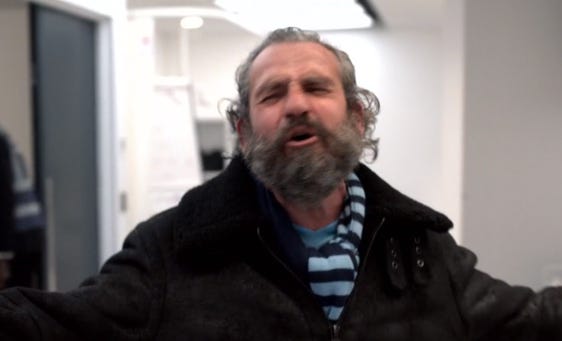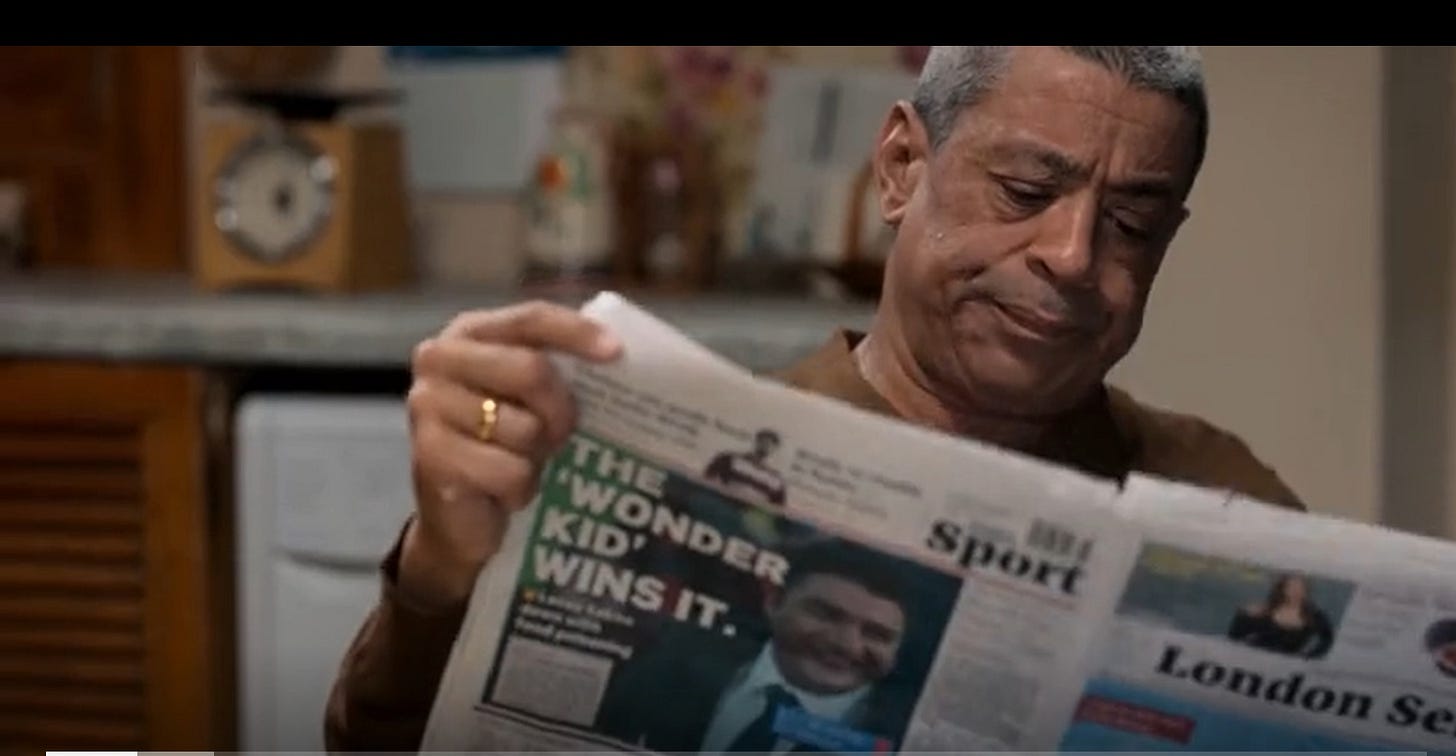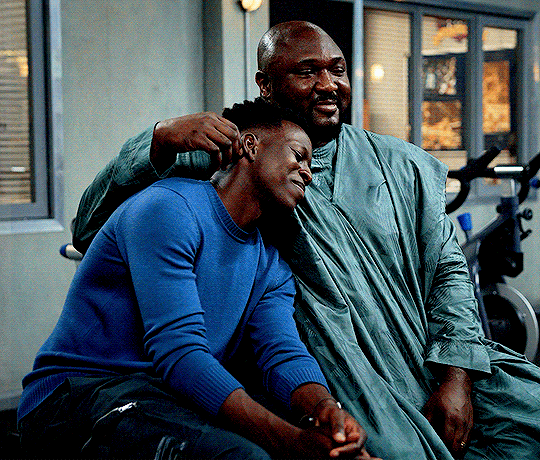The Ted Lasso Relationship Guide: Fathers and Sons
The introduction to Sam Obisanya's dad is a great look at a healthy parent relationship
I admit, I wasn’t entirely sold on this week’s episode of Ted Lasso when it started. The jokes felt a little off and I wasn’t vibing with the whole “string theory” idea. It was the first one where I was thinking that maybe it was just a miss. But by the end, I was right there with Trent Crimm - a big dork who thinks this is going to work.
This was, of course, due to us finally having the opportunity to meet Ola (!!!) Obisanya. We have met him through his text to Sam and a phone conversation, but finally getting to see him in person (and learning his first name, that had me immediately burst into tears for a third time in the episode) was something I didn’t know that we needed, but boy did we ever.
And I believe we needed it because we met James Tartt, also in locker rooms.
We hear about Jamie’s dad when he talks about him in the exorcism ceremony. We get a glimpse of how his son views their relationship. And then at the end of the season, we see that Jamie’s perception of his father is a pretty clear-eyed view when we see and hear James degrading Jamie for passing the ball, even after Manchester City won the match. Jamie’s decision was what ultimately won the game, but even with that success, his decision to allow someone else the glory of the goal was not enough for James, and he let his son know about it loudly and with great disdain.
More than that scene, however, was the one in season 2, episode 8 (Man City) where James Tartt heads to the locker room yet again after AFC Richmond’s loss to Manchester City. He comes in, all swagger and bravado, a little man insulting both his son and his son’s teammates, pleading, “No offense!” after speaking fully offensive words. Jamie starts the scene quiet and despondent after the win, reluctantly allowing his father passage into the room, but as the scene progresses, James gets in Jamie’s face, pushing him both physically and emotionally until Jamie snaps and punches his father. It is one of the most stark representations of abuse that the show has ever displayed.
This week, however, we see a completely different scene play out, also in a locker room.
Sam arrives for practice after seeing his restaurant vandalized by anti-refugee zealots who are upset that a sports star would dare to comment on the social ills of the country where he lives. Sam is angry and frustrated, mad that the same people who have no problem loving him when he’s playing well are quick to turn on him as soon as he speaks up for people with less privilege than he has.
Just as he is losing control, we hear a booming voice off screen say, “Samuel!” and then the form of Ola Obisanya fills the screen and his son runs and throws himself into his father’s arms.
The juxtaposition of these two scenes and two ways for fathers to be is powerful.
But there is another father scene in this episode that speaks to a more insidious kind of parenting, and that is with Nate.
It is his sister’s birthday, and his mother has invited him over for supper. It seems like a nice enough time, but when Nate’s sister asks him about his dating life, Lloyd Shelley shuts down the conversation. Then he suggests a trip for ice cream, inviting Nicole’s husband to join them so Nate, Nicole, and Maria can have their “girl talk.”
Lloyd isn’t nearly as cutting as James is. He isn’t brash. He doesn’t use grossly offensive language. But he doesn’t respect his son. He doesn’t include his son. He doesn’t love his son with an unconditional kind of love. And while that might not be as obviously damaging as the kind of abuse that Jamie endured at the hands of his father, it still has an impact on the way that Nate moves through the world.
And while their scene didn’t take place in a locker room, the results played out adjacent to a locker room when Nate goes off on Ted in the season 2 finale. The many complaints about slights that he lobs at Ted strike me as grievances that Nate has with his own father because his interactions with Ted are stand-ins for what he wanted from his dad. He doesn’t have a relationship where he could lash out at his father, so he does the next best thing and pours out his hurt and shame on Ted.
Three fathers, three sons.
My kids are all getting older - my youngest biological kid turns 20 in just a few days. Even my youngest step-son is closing in on adulthood. As they have aged, something that matters so much to me is that they all feel comfortable showing all of their emotions to me, and finding comfort in my presence. I never want them to feel like they have to protect me from the whole of who they are. I don’t want our relationships defined by fear, intimidation, or neglect, but rather by openness, security, and intimacy.
Ted Lasso has shown us some really incredible relationships, most thriving and healthy. But it has shown us largely difficult relationships between parents and their adult children. So being able to see a free expression of love and respect between Ola and Sam was a deeply powerful moment. It shows us that parents can offer comfort to their children even when they are no longer young. It shows us that when we have healthy relationships, we can share our whole selves with the other person. And it shows that when things are good or things are bad or some combination of the two, we can dance.








